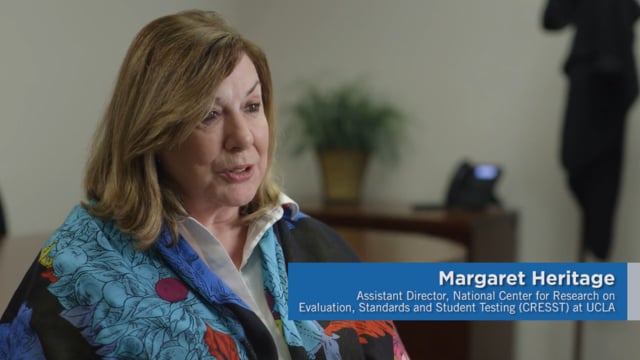What is formative assessment?
Formative assessment is a planned, ongoing process used by all students and teachers during learning and teaching to elicit and use evidence of student learning to improve student understanding of intended disciplinary learning outcomes and support students to become self-directed learners. Effective use of the formative assessment process requires students and teachers to integrate and embed the following practices in a collaborative and respectful classroom environment:
- Clarifying learning goals and success criteria within a broader progression of learning;
- Eliciting and analyzing evidence of student thinking;
- Engaging in self-assessment and peer feedback;
- Providing actionable feedback; and
- Using evidence and feedback to move learning forward by adjusting learning strategies, goals, or next instructional steps.
–FAST SCASS revised definition 2018
The Michigan Department of Education (MDE) supports the Formative Assessment for MI Educators (FAME) program. Learning teams transform and deepen their practice MAC supports the program with research, evaluation, event coordination, web development and publications.
The resources curated on this page include a definition, short articles, research, a video and a recommendation to learn more through the Assessment Learning Module Understanding the Formative Assessment Process. A broader search for formative assessment resources in our Assessment Resource Bank should include the terms: Assessment for Learning, and Formative Assessment Process.

A Learning Moment Video
By definition, students are part of the formative assessment process. Margaret Heritage explains why the effective use of formative assessment has a positive impact on students.
We’ve assembled more resources for this topic below.
Accentuate the Formative: Michigan Teachers Use Rubrics and Video to Improve their Practice
This article from the FAME research team highlights teacher’s use of formative assessment to improve their own practice.
FAME Website: Formative Assessment for Michigan Educators (FAME)
FAME Website: Formative Assessment for MI Educators (FAME) is a professional learning initiative sponsored by the Michigan Department of Education. This site supports the program and contains many high-quality resources and links.
Formative assessment(s) or formative assessment? The “s” makes a difference.
This Learning Point describes the misconception that results when using the term “formative assessmentS” to describe the formative assessment PROCESS.
How can stealth assessment in games measure and support learning?
This Learning Point defines the concept of "stealth assessment" and describes how it can be used to embed ongoing formative assessment opportunities deeply into a game (or other engaging digital learning environment), blurring the distinction between learning and assessment.
How Teachers Engage with Assessment for Learning: Lessons from the Classroom
Marshall and Drummond provide some history, about the origins of the concept of assessment for learning and the emergence of the term formative assessment
LM-Margaret Heritage: Federal and state education policies that support formative practice
In this ALN Learning Moment video, Margaret Heritage answers the question, "Are you familiar with examples of federal or state education policies that support and spread formative practice to scale?"- 5.8.18.
LM-Margaret Heritage: Formative Assessment Process definition and classroom application (BBAF22)
In this Learning Moment video, Margaret Heritage answers the question: How would you define the formative assessment process and describe its application in the classroom? (BBAF22)
Models of proficient achievement: Why are they important?
This Learning Point explains why and how models of proficient achievement are important in the formative assessment process to support learners
Online formative assessment strategies that help students with disabilities
Effective use of the formative assessment process can improve learning for all students, and it is particularly helpful for students with disabilities. And it can be especially important for distance learning, which sometimes can feel to students like an endless “to-do” list with no particular goal in mind.
Quick Guide to FAME Components & Elements
This graphic depicts how the formative assessment process has been conceptualized and is taught through the FAME program in Michigan.
Revising the Definition of Formative Assessment, © 2018 by CCSSO.
This resource provides an overview of the FAST SCASS's revised definition on formative assessment, originally published in 2006. The revised definition includes an overview of the attributes of effective formative assessment and emphasizes new areas emerging from current research, theory and practice.
What are learning progressions?
This Learning Point describes what a learning progression is and why it is integral to formative assessment.
